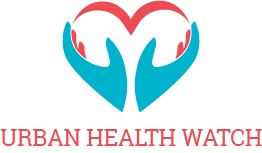Depression and the Elderly: Why It’s So Underdiagnosed
It is the general malaise that can take over days. It is the feeling that something is off, or just out of reach. It is the understanding that everything is fine, but not everything is okay.
It is depression, and it has been severely underdiagnosed within the elderly generation.
According to the World Health organization, over 20% of our aging population are currently living with a mental illness. Nearly 7% of the entire elderly population are living with depression. Yet, even with such a high prevalence, there is a disparity of what is occurring and what is actually being treated.
In fact, according to a 2013 study conducted by the Journal of Affective disorders, “depressed older persons, including those with persistent depression, are under-treated.” This is believed to be due to the fact that the symptoms are often overlooked.
Why We Miss the Symptoms
The general consensus is that depression is undertreated within the elderly community due to missing the symptoms. It is believed that we miss these symptoms because we explain any behavioral changes to the inevitability of aging. Any red flags or warning signs are simply explained away and not followed-up on.
For one example, a major signifier of depression is noticeable changes in personal grooming. A person who normally adheres to a regular regimen of grooming may begin neglecting all personal care. This could manifest as a great aunt who has begun skipping showering, or a family friend who has lost all interest in maintenance altogether.
Although this is a clear clarifier of mental illness, there is a belief within the community that this is an inevitability of growing old. We believe that it is inevitable to forget grooming habits, become reclusive, or have intense mood bursts. Thus, the person is not helped, even though they displayed clear warning signs.
Where We Go From Here
The best way to fight the underdiagnosis of depression is through education. Health care providers need to be informed of the signs of depression, aware of the symptoms, and proactive in getting help to those that need it. Loved ones need to break out of the ‘mythos of aging’ and check in with an ailing friend.
As our loved ones age, we do everything we can to treat their body; now, it is imperative that we also pay attention to the ailments of the mind!
For more information contact a home health care agency, like a home health care agency, today.
